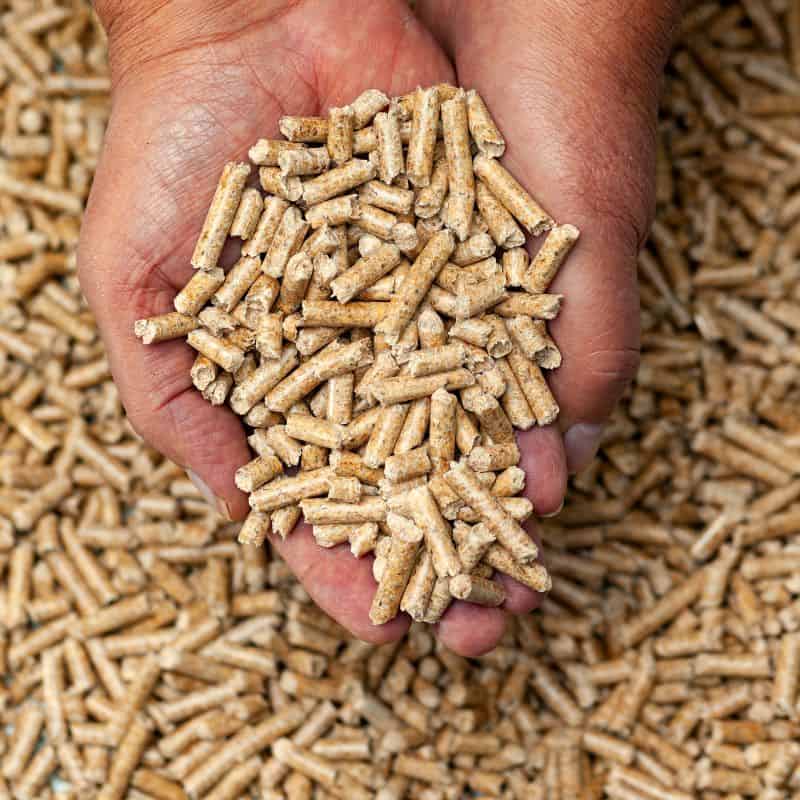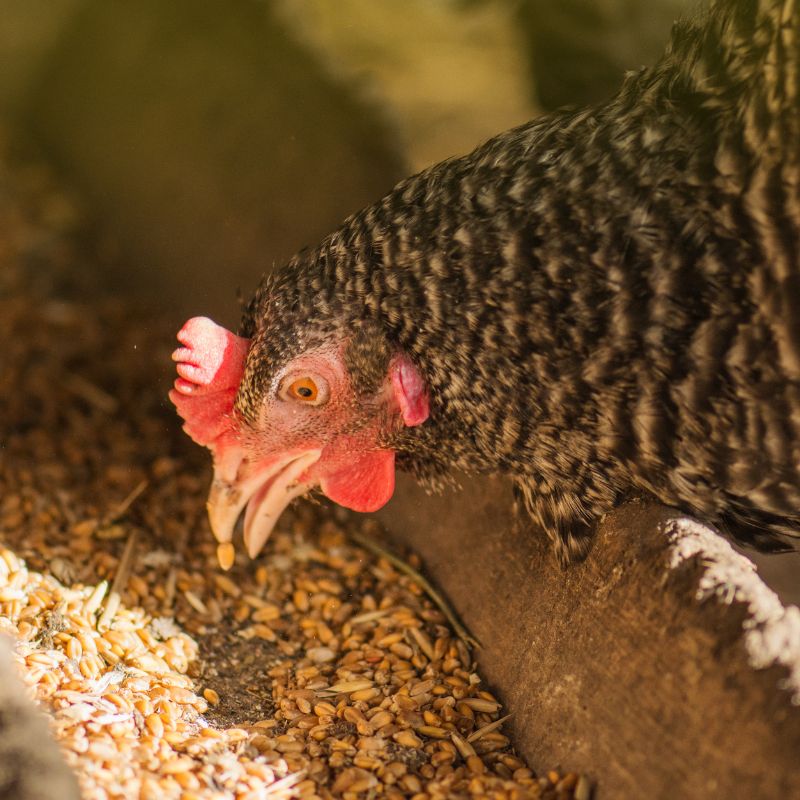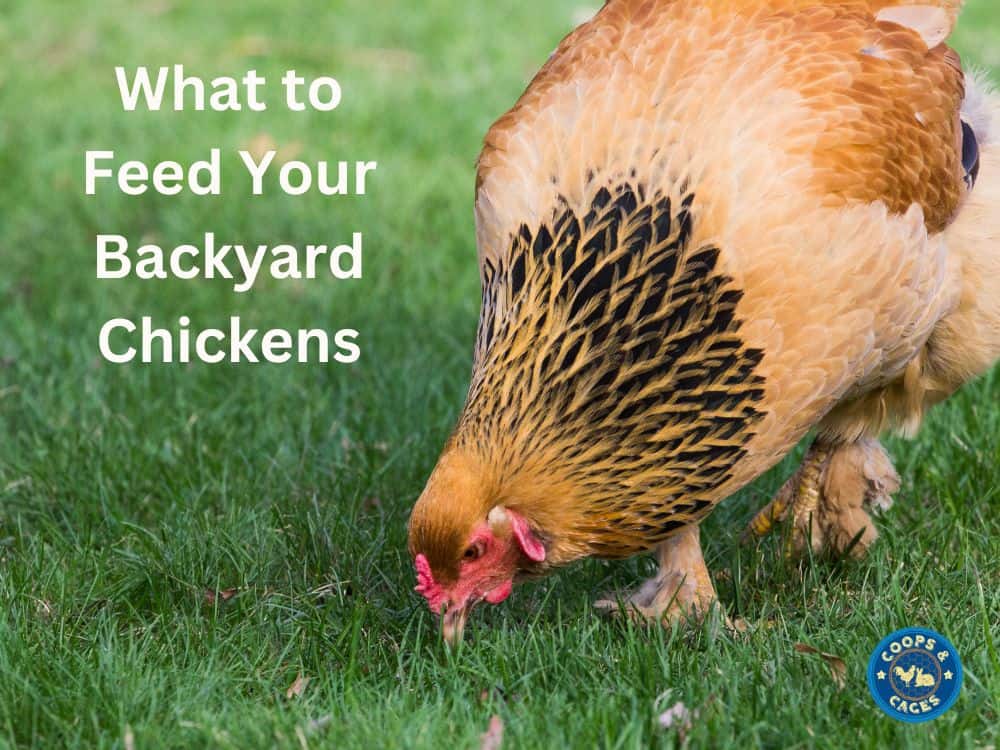Chickens, How To Do Things
What to Feed Your Backyard Chickens
A lot of customers first starting out with chickens ask us – How do I make sure my backyard chickens stay healthy and happy?
Thankfully, my many years of owning pet chickens has provided me with the right knowledge to help our customers. I know that the best way to keep your girls healthy is through their diet.
Chickens are omnivores which essentially means they will eat anything in front of them – veggies, flowers, grass, seeds, bugs or even frogs!
But that also means we can’t trust them to make the right nutritional choices. It is up to backyard chicken keepers to feed their flock nutritious food and keep them away from anything that could be potentially harmful.
Commercial Chicken Feed
You need to provide your hens with a high-quality commercial chicken feed daily. These can be purchased at rural supply stores and are formulated to meet your flock’s daily nutritional requirements.
Types of Chicken Feed
Your chickens will eat different types of feed depending on their age and whether they lay eggs or not.
- Starter Feed: Given to baby chickens until they reach 6 weeks old. It is high in protein to promote healthy growth.
- Grower Feed: Given to chicks after 6 weeks old. It contains less protein and calcium.
- Layer Feed: Fed to hens once they begin laying eggs. It contains the right nutritional elements to result in healthy eggs with strong shells.
- Broiler Feed: Fed to chickens being raised for meat production. It is extremely high in protein to encourage fast growth.
Forms of Chicken Feed
Each type of chicken feed comes in various forms. Which form you chose depends on your (and your chooks’) preference.
- Mash: Loose feed. It is very easy to digest due to its small size but is also quite messy and easily wasted.
- Pellets: Mash that is set into small, hard biscuits. They can be difficult for young chicks to break up, but they are not messy.
- Crumbles: Pellets that are not fully formed and are breaking apart. A great medium if you are on the fence about mash vs pellets!

Veggies and Table Scraps
Though commercial feed is great for chickens, it is important for them to have a varied diet. Vegetables and table scraps are a great way to supplement their diet nutritionally plus make fun treats.
We recommend that “Scraps should make up no more than 20% of your chooks’ diets”.
Suitable for Chickens
- Bread
- Cauliflower
- Cooked meat or seafood
- Cooked rice
- Corn
- Grapes
- Lettuce
- Pumpkin
- Spinach
- Strawberries
Vegetables can be given cooked or raw.
Not Suitable for Chickens
- Avocado
- Chocolate
- Coffee or tea
- Dairy
- Onions or garlic
- Processed foods
- Raw beans
- Raw potato
- Rhubarb
- Rotten foods
Grit
Grit is finely ground hard substances. When chickens eat grit, it is stored in their gizzard and helps them crush up other food they eat. Because chickens don’t have teeth, they need grit for eating bugs, scraps or anything other than their commercial feed.
Chickens can make their own grit by eating small pebbles or their own egg shells. However, most backyard chickens will need to be fed commercial grit too.
Commercial grit can be purchased at a farm supply store and is usually made from crushed up oyster shells.

Mealworms
Dried mealworms are a popular treat for backyard chickens. Chooks love them and they are extremely nutritious!
Mealworms are roughly 50% protein plus contain good fats, carbohydrates, and amino acids. We recommend each chicken eating no more than one teaspoon of mealworms per day. Excessive protein in their diet can result in kidney failure.




If you re just getting started keeping chickens or other poultry on your small farm, you may be wondering what to feed your chickens. It s best to start with what chickens and poultry eat when they re on pasture, or outside, in a field, with grass and weeds to roam on and eat. From there, you can learn about the best diet to provide your chickens.